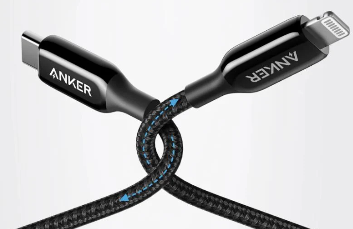Top 5 Benefits of Using a DC to AC Converter

In today’s technology-driven world, converting DC (direct current) to AC (alternating current) has become increasingly important for various applications. This conversion process is essential for powering devices that require AC electricity, such as household appliances, industrial machinery, and electronic equipment. However, the advantages of using a DC-to-AC converter extend far beyond mere compatibility. In this article, we will explore the top five benefits of utilizing a DC-to-AC converter in your setup.
Why Choose DC to AC Converter
Enhanced Compatibility with Appliances
One of the primary benefits of using a DC-to-AC converter is enhanced compatibility with a wide array of devices. Most household appliances, including refrigerators, air conditioners, and washing machines, operate on AC power. If you have a renewable energy source, such as solar panels, they typically generate DC electricity. By incorporating a DC-to-AC converter, you can seamlessly integrate renewable energy into your daily life without sacrificing functionality. This compatibility enables you to use solar energy to power your home or office, significantly reducing your reliance on grid electricity and cutting down on energy costs.
In addition to household appliances, commercial and industrial equipment often require AC power for optimal performance. A DC-to-AC converter allows businesses to harness the benefits of DC sources like batteries and renewable energy systems while maintaining the ability to operate essential machinery. This flexibility is especially beneficial in sectors where energy efficiency and sustainability are crucial.
Efficient Energy Utilization
Another significant benefit of using a DC-to-AC converter is the potential for improved energy efficiency. Many modern converters are designed to minimize energy loss during the conversion process. High-quality converters employ advanced technology to ensure that the majority of the DC power is transformed into usable AC power, resulting in less waste.
This efficient energy utilization is particularly advantageous in renewable energy applications. For example, when using solar panels, the generated DC electricity can be converted to AC for home use, allowing homeowners to maximize the benefits of their renewable energy systems. By ensuring that as much energy as possible is captured and utilized, a DC-to-AC converter can help reduce energy costs and minimize the environmental impact.
Versatility Across Applications
DC to AC converters are incredibly versatile, making them suitable for a wide range of applications. From powering household appliances to supporting industrial equipment, these converters can be utilized in various settings. They are commonly found in renewable energy systems, backup power supplies, and electric vehicles, among other uses.
In addition to versatility in application, these converters come in various sizes and power ratings, allowing users to select the right option for their specific needs. Whether you require a small converter for a portable device or a larger unit for heavy machinery, the availability of different models ensures that there’s a suitable option for everyone. This adaptability makes dc to ac converters are an essential component for both residential and commercial energy solutions.
Improved Power Management
Using a DC-to-AC converter can also enhance power management in your energy systems. Many modern converters come equipped with features like built-in monitoring and management systems that provide users with real-time data on energy consumption. This information is invaluable for optimizing energy use and identifying inefficiencies in the system.
Moreover, effective power management helps prevent overloading and potential damage to appliances. By regulating the amount of power distributed to connected devices, these converters ensure that appliances receive the appropriate voltage and current, prolonging their lifespan and reducing maintenance costs. This benefit is especially important for businesses that rely on sensitive equipment, as ensuring optimal power supply can minimize downtime and operational disruptions.
Cost Savings Over Time
Last but not least, using a DC-to-AC converter can lead to significant cost savings over time. While the initial investment may vary depending on the model and features, the long-term benefits often outweigh the costs. By enabling the use of renewable energy sources, converters can drastically reduce monthly electricity bills.
Additionally, the efficient energy utilization and improved power management offered by these converters can further lower operational costs. Investing in a quality DC-to-AC converter can be a strategic decision that pays off in the long run, especially as the demand for sustainable energy solutions continues to rise.
Conclusion
In conclusion, the benefits of using a DC-to-AC converter are numerous and impactful. From enhanced compatibility with appliances to efficient energy utilization, versatility, improved power management, and cost savings, these converters play a crucial role in modern energy systems. As we continue to embrace renewable energy and strive for more sustainable practices, the importance of reliable and efficient DC to AC-conversion will only grow. Investing in a quality converter is not just a practical decision; it’s a step toward a more sustainable and efficient future.



